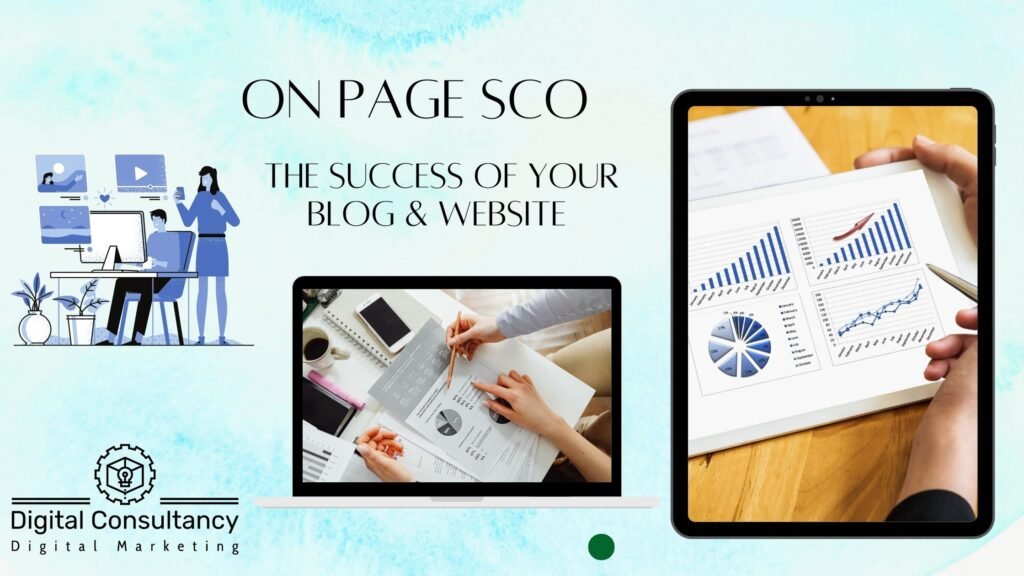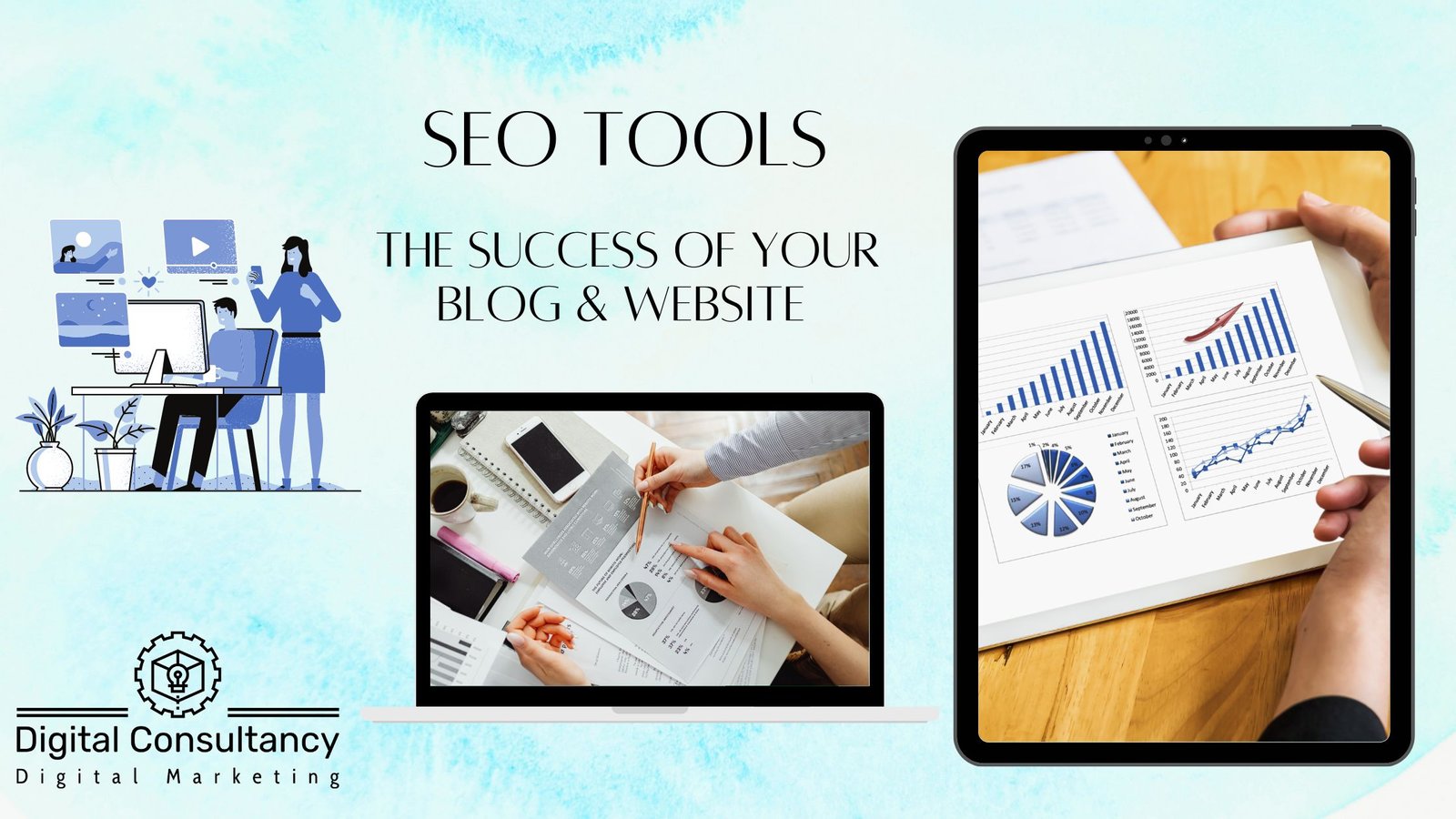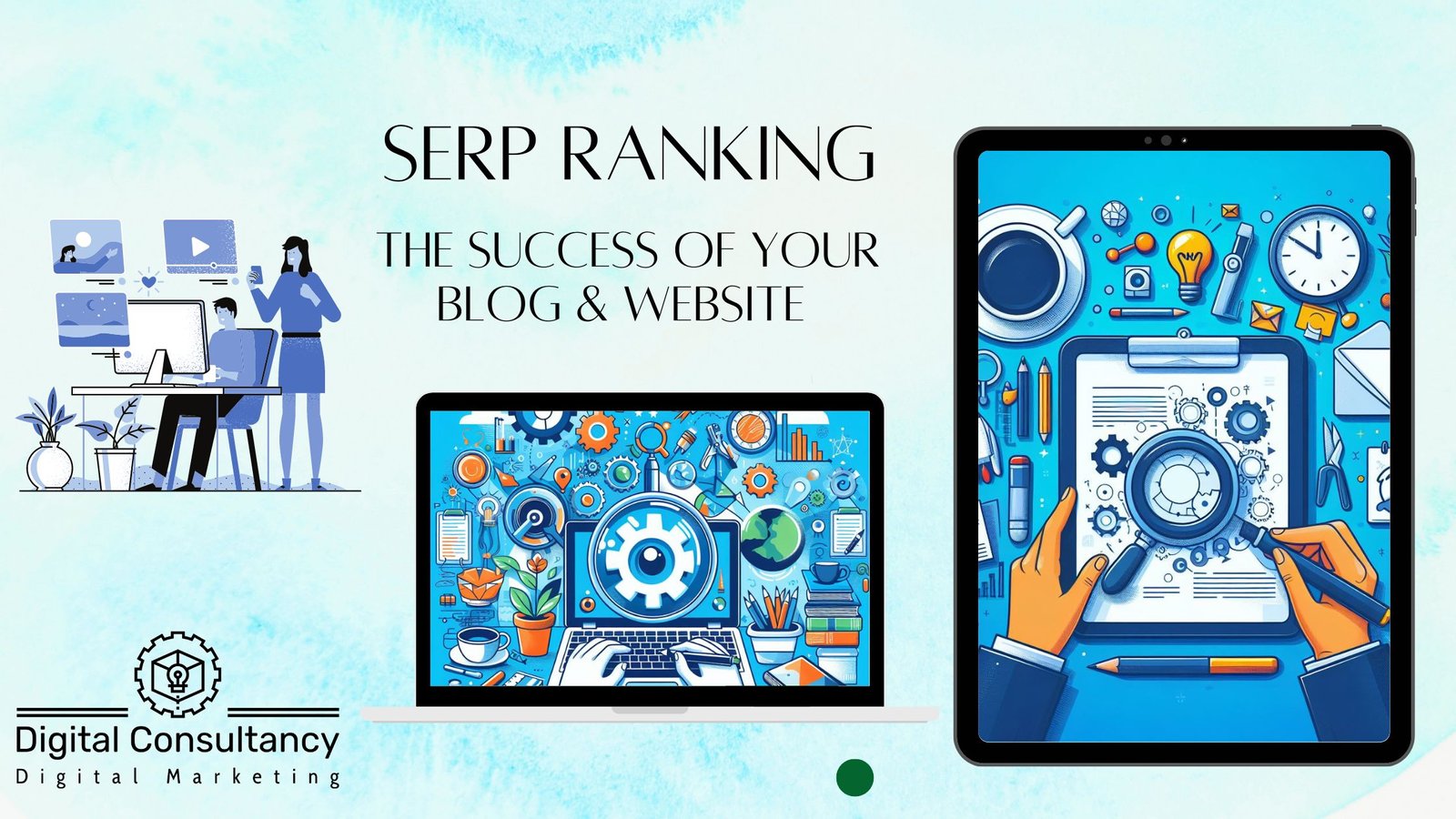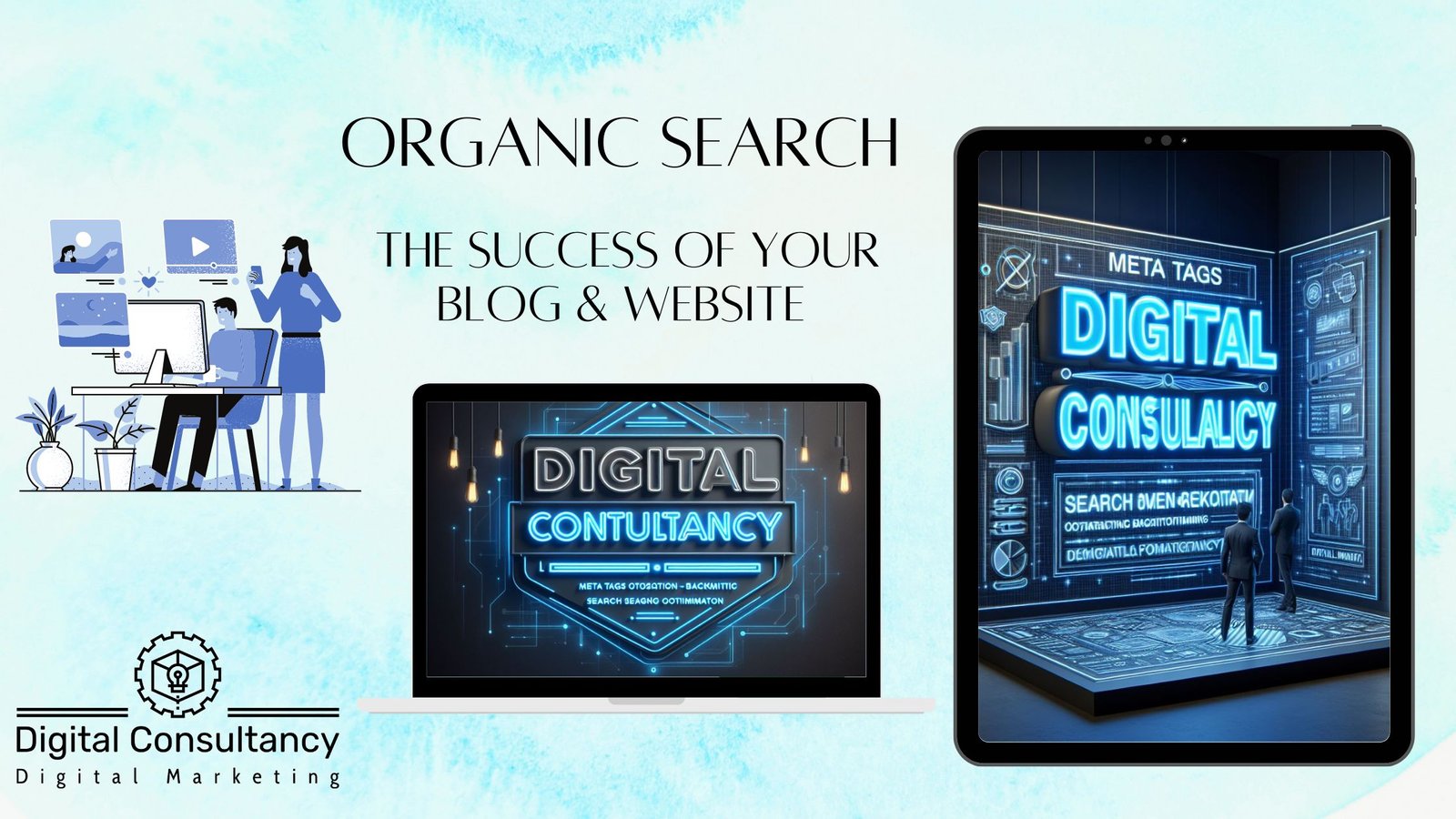Introduction
In the wider realm of digital marketing and website development, on-page SEO stands as an important strategy for ranking individual web pages higher and getting more relevant traffic in search engines. Basically, it involves the intricate crafting and enhancement of various elements within a web page to align with search engine algorithms and user intent. These elements include content quality, HTML tags, Meta descriptions, keyword optimization, and other technical aspects that collectively affect a site’s visibility and performance in organic search results.
Table of Contents
ToggleFor a blog writer and web developer, understanding on-page SEO is like mastering the art and science of digital storytelling. As a blog writer, one crafts statements and adding pieces of content, while as a web developer, the job revolves around creating a functional and user-friendly website interface. However, without effective on-page SEO practices, even the most compelling content and beautifully designed websites can remain hidden in the vast digital landscape.
By integrating on-page SEO techniques, blog writers can ensure that their content resonates with both search engines and readers. This includes strategically adding relevant keywords, optimizing meta tags, structuring content for readability, and enhancing user experience—all key elements that lead to higher rankings and increased organic traffic. I contribute. Also, web developers play an important role in implementing technical SEO aspects, such as improving site speed, ensuring mobile responsiveness, and enhancing site architecture, thereby providing a smooth user experience. Creating content that search engines love.
In essence, on-page SEO acts as a bridge between content creation and technical web development, and aligns the two to achieve optimal search engine visibility. For blog writers and web developers alike, adopting and mastering on-page SEO practices is imperative to navigating the competitive digital landscape, driving organic traffic, and ultimately achieving online success.
What is On-Page SEO?
On- Page SEO refers to the practice of optimizing individual web pages to rank advanced in search engines and drive applicable traffic. Unlike off – page SEO, which focuses on external factors like backlinks and social signals, on- page SEO deals with elements on the website itself. Then are some crucial components and practices associated with on- page SEO Keyword Optimization This involves researching and strategically placing applicable keywords within the content, title tags, meta descriptions, and headers to help search engines understand the topic of the page.
Quality Content Creating high-quality, applicable, and precious content is pivotal. Content should be well-written, instructional, and engaging for users, as search engines prioritize user experience. Title Tags Each page should have a unique and descriptive title tag that accurately reflects its content. The title tag appears as the clickable headline in search engine results and should include the primary keyword. Meta Descriptions while Meta descriptions may not directly influence rankings, they provide a brief summary of the page’s content in search results, encouraging users to click.
A compelling Meta description can improve click-through rates. URL Structure URLs should be SEO-friendly, terse, and descriptive. Including applicable keywords in the URL can help search engines and users understand the page’s content. Header Tags using header tags (H1, H2, H3, etc.) to structure content helps search engines understand the hierarchy and significance of information on the page. Incorporating keywords in headers can also improve SEO. Internal Linking to other applicable pages within your website helps distribute page authority and guides users to affiliated content. It also helps search engines crawl and index your site more effectively.
Optimized Images should be optimized with descriptive file names, alt text, and proper file sizes. Alt text provides context to search engines about the image content, improving accessibility and SEO. Page Speed is a critical factor for both user experience and SEO. Optimizing images, leveraging browser caching, minimizing code, and using content delivery networks (CDNs) can help improve loading times.
Mobile Optimization With the increasing use of mobile devices, ensuring that your website is responsive and mobile-friendly is essential. Schema Markup Implementing schema markup can help search engines understand the context of your content more, potentially improving visibility in search results through rich snippets, similar as reviews, ratings, and other structured data. In summary, on- page SEO focuses on optimizing individual web pages to enhance their visibility and applicability in hunt engine results. By implementing stylish practices, businesses and website owners can improve rankings, increase organic traffic, and provide a better user experience for visitors.
Importance
Certainly! On-page SEO (Search Engine Optimization) refers to the practice of optimizing individual web pages to rank higher and earn more relevant traffic in search engines. The significance of on-page SEO cannot be overstated, as it plays a crucial role in determining a website’s visibility, user experience, and overall success in organic search results. Here are some key reasons why on-page SEO is essential:
Improved Search Engine Rankings:
Properly optimized on-page elements, such as Meta titles, Meta descriptions, header tags, and keyword-rich content, help search engines understand the relevance and context of your web pages. This understanding can lead to higher rankings for targeted keywords, making it easier for users to find your content.
Enhanced User Experience:
On-page SEO involves optimizing website elements like page speed, mobile responsiveness, and user-friendly navigation. A well-structured and easy-to-navigate website enhances user experience, reduces bounce rates, and increases the likelihood of visitors staying longer on your site.
Targeted Keyword Optimization:
By conducting keyword research and strategically incorporating relevant keywords into your content, headings, and meta tags, you can target specific search queries that potential customers or readers are using. This targeted approach ensures that your content reaches the right audience, increasing the chances of conversions, leads, or sales.
Quality Content Creation:
On-page SEO encourages the creation of high-quality, informative, and valuable content that addresses users’ queries and provides solutions to their problems. Quality content not only attracts and engages visitors but also establishes your website as a credible and authoritative source within your industry or niche.
Optimized Multimedia Elements:
Incorporating optimized images, videos, and other multimedia elements can enhance the visual appeal of your content and improve user engagement. Properly optimizing these elements with relevant alt text, captions, and file names can also help search engines understand and index your content more effectively.
Increased Organic Traffic:
By implementing on-page SEO best practices, you can improve your website’s visibility and rankings in search engine results pages (SERPs). Higher rankings lead to increased organic traffic, as more users are likely to click on your website when searching for relevant keywords or topics.
Cost-Effectiveness:
Unlike paid advertising methods, on-page SEO offers a cost-effective way to drive organic traffic to your website. By investing time and resources in optimizing your web pages, you can achieve sustainable, long-term results without continually paying for clicks or impressions.
In summary, on-page SEO is a fundamental component of any successful digital marketing strategy. By optimizing individual web pages for search engines and users alike, you can improve your website’s visibility, attract more targeted traffic, enhance user experience, and ultimately achieve your online business goals.
Strategy
Developing an effective on-page SEO strategy is crucial for optimizing individual web pages to improve search engine rankings, increase organic traffic, and enhance user experience. Here’s a comprehensive on-page SEO strategy that covers key elements and best practices:
Keyword Research:
Use keyword research tools like Google Keyword Planner, SEMrush, or Ahrefs to discover keyword opportunities, search volume, and competition.
Target long-tail keywords, question-based queries, and semantic variations to capture a broader range of search queries.
Optimize Meta Titles and Descriptions:
Create compelling and descriptive Meta titles (typically 50-60 characters) that include targeted keywords and accurately reflect the content of each web page.
Write engaging Meta descriptions (150-160 characters) that summarize the page’s content and encourage users to click through from search engine results pages (SERPs).
Create High-Quality Content:
Develop informative, relevant, and engaging content that addresses users’ queries, provides valuable insights, and offers solutions to their problems.
Incorporate targeted keywords naturally within the content, headings (H1, H2, H3 tags), and subheadings to improve keyword relevance and semantic context.
Use bullet points, numbered lists, images, and multimedia elements to enhance readability, visual appeal, and user engagement.
Optimize Headers and Structure:
Use header tags (H1, H2, H3, etc.) to structure your content hierarchically and indicate the importance of each section.
Ensure that your primary keyword is included in the H1 tag (main heading) and strategically used throughout the subheadings and content.
Improve Page Speed and Mobile Responsiveness:
Optimize website performance by minimizing code, leveraging browser caching, and optimizing images and multimedia elements.
Ensure that your website is mobile-friendly and responsive across various devices and screen sizes using responsive design principles.
Optimize Images and Multimedia:
Use descriptive file names, alt text, and captions for images and multimedia elements to provide context, improve accessibility, and enhance search engine visibility.
Internal Linking and Anchor Text:
Create a logical and hierarchical website structure with internal links to guide users and search engine crawlers through your site.
Use descriptive anchor text and internal linking strategies to connect related content, distribute page authority, and improve crawl ability and indexation.
Optimize URL Structure:
Create SEO-friendly URLs that are concise, descriptive, and include targeted keywords relevant to the page’s content.
Avoid using dynamic parameters, excessive numbers, or irrelevant characters in URLs to maintain clarity and user-friendliness.
Monitor and Analyze Performance:
Regularly monitor and analyze on-page SEO performance using tools like Google Analytics, Google Search Console, or third-party SEO platforms.
Track key metrics such as organic traffic, rankings, click-through rates (CTR), bounce rates, and conversion rates to evaluate the effectiveness of your on-page SEO efforts.Identify areas for improvement, optimize underperforming pages, and refine your on-page SEO strategy based on data-driven insights and best practices.
Understanding
On-page SEO encompasses a myriad of techniques and practices aimed at optimizing individual web pages to rank higher and earn more relevant traffic in search engines. Elements such as keyword optimization, quality content creation, Meta tags, internal linking, and mobile-friendliness constitute the core components of effective on-page SEO. While these factors may appear straightforward, their intricate interplay and the nuances involved necessitate specialized knowledge and skill sets.
The Value of Expertise
- Strategic Keyword Placement: Expert SEO professionals possess the acumen to conduct comprehensive keyword research and strategically integrate these keywords into content, titles, Meta descriptions, and headers. This ensures that web pages resonate with both search engines and users, enhancing organic visibility.
- Quality Content Creation: Beyond mere keyword insertion, crafting compelling, informative, and relevant content remains pivotal. SEO experts understand user intent and leverage this understanding to develop content that not only satisfies search algorithms but also engages and educates readers.
- Technical Proficiency: On-page SEO extends beyond content. It encompasses technical aspects like website speed optimization, mobile responsiveness, schema markup, and URL structures. Experts adeptly navigate these complexities, ensuring seamless user experiences and favorable search engine evaluations.
- Adaptability to Algorithmic Changes: Search engine algorithms continually evolve, necessitating adaptability and proactive adjustments. SEO professionals remain abreast of algorithmic shifts, swiftly implementing requisite modifications to maintain and enhance rankings.
Investing in Expert Services: A Strategic Imperative
- Maximized ROI: While initial investments in on-page SEO services may appear daunting, the long-term returns justify the expenditure. Enhanced organic visibility, increased website traffic, improved user engagement, and higher conversion rates collectively amplify ROI, warranting the initial investment.
- Competitive Advantage: In an oversaturated digital landscape, standing out necessitates strategic differentiation. Investing in expert on-page SEO services equips businesses with the tools, insights, and strategies to outperform competitors, capture market share, and foster sustainable growth.
- Holistic Digital Strategy: On-page SEO services, when seamlessly integrated with off-page SEO, content marketing, and other digital strategies, culminate in a holistic approach to online visibility and success. Expertise ensures alignment, coherence, and synergy across diverse channels, amplifying results and fostering comprehensive digital dominance.
Conclusion
In the digital epoch characterized by relentless competition and evolving search engine dynamics, on-page SEO emerges as a linchpin for online success. However, harnessing the full potential of on-page SEO necessitates more than superficial knowledge—it demands expertise, strategy, and relentless commitment. By investing in expert on-page SEO services, businesses position themselves to capitalize on organic visibility, engage target audiences effectively, and navigate the intricate intricacies of the digital landscape with finesse and efficacy. Embrace expertise, unlock potential, and propel your digital endeavors to unparalleled heights of success.
Mail Us ahmadzebabbasi@live.com
Watsapp Us
You Can Read Also About Content Marketing

